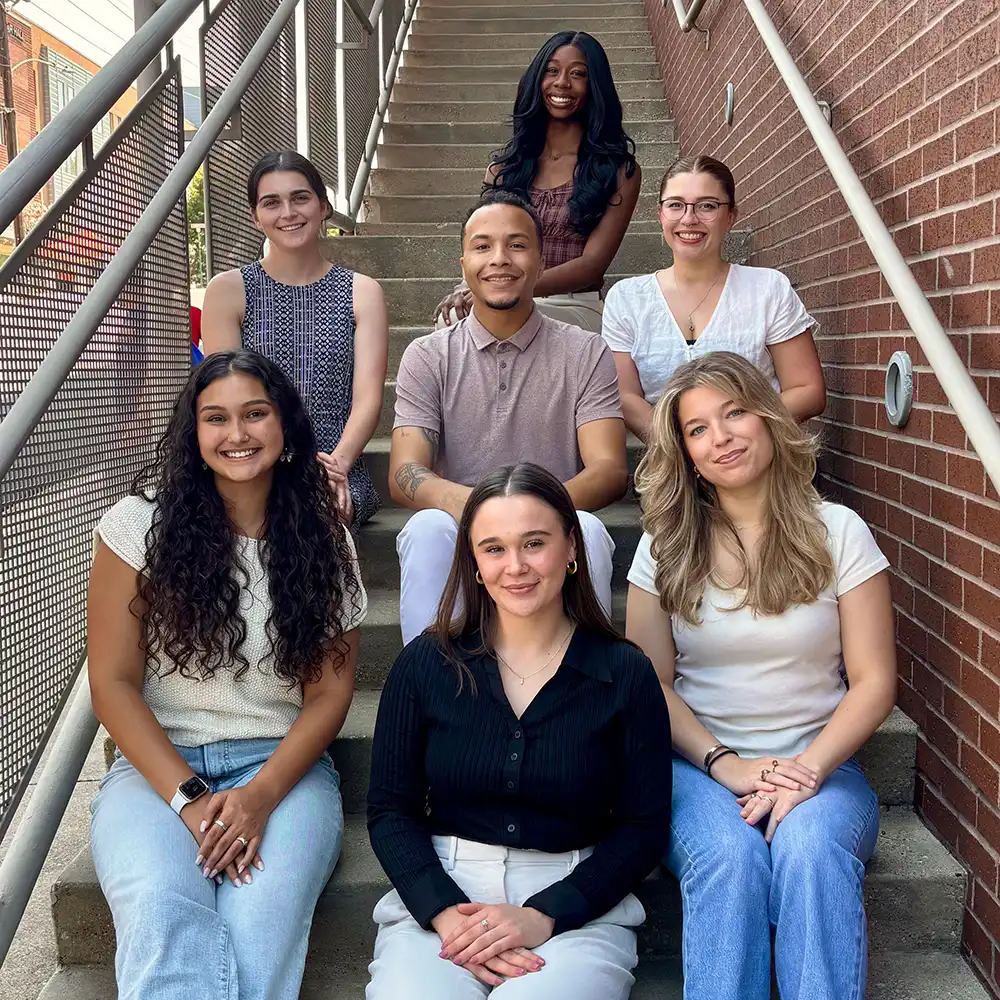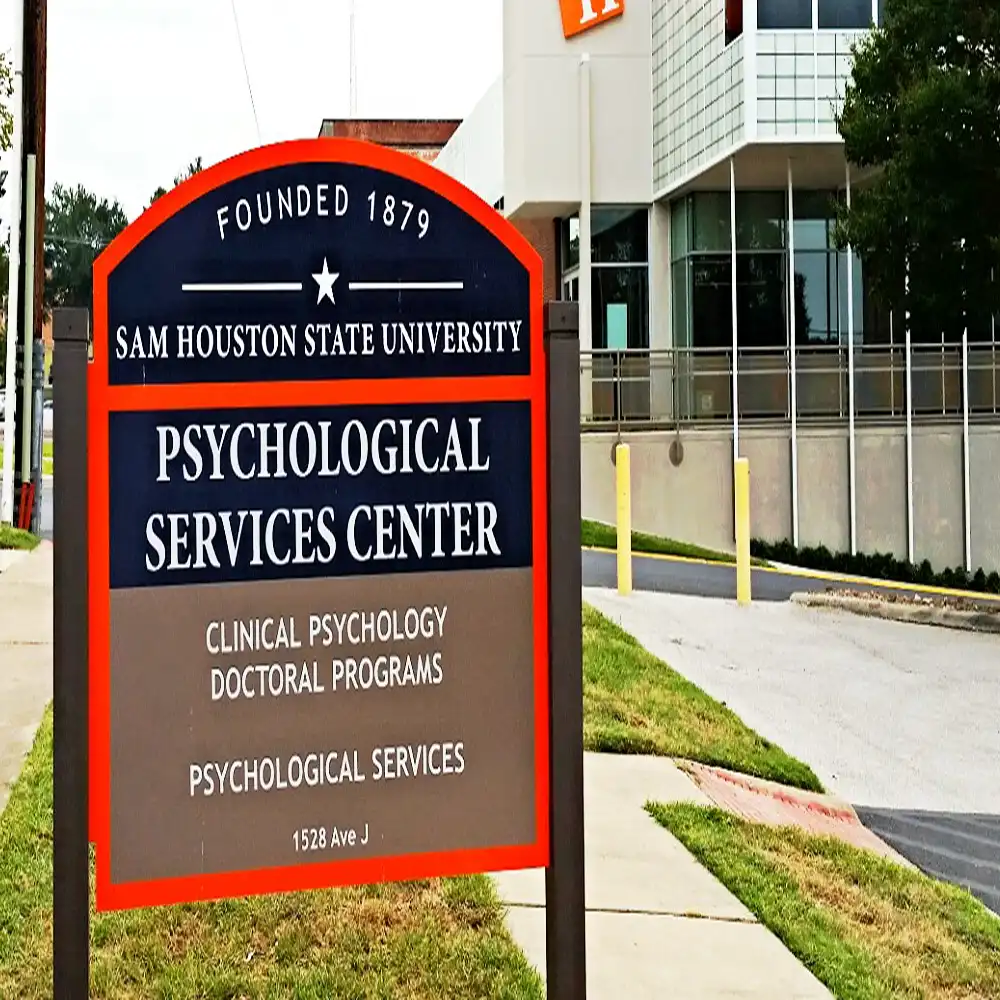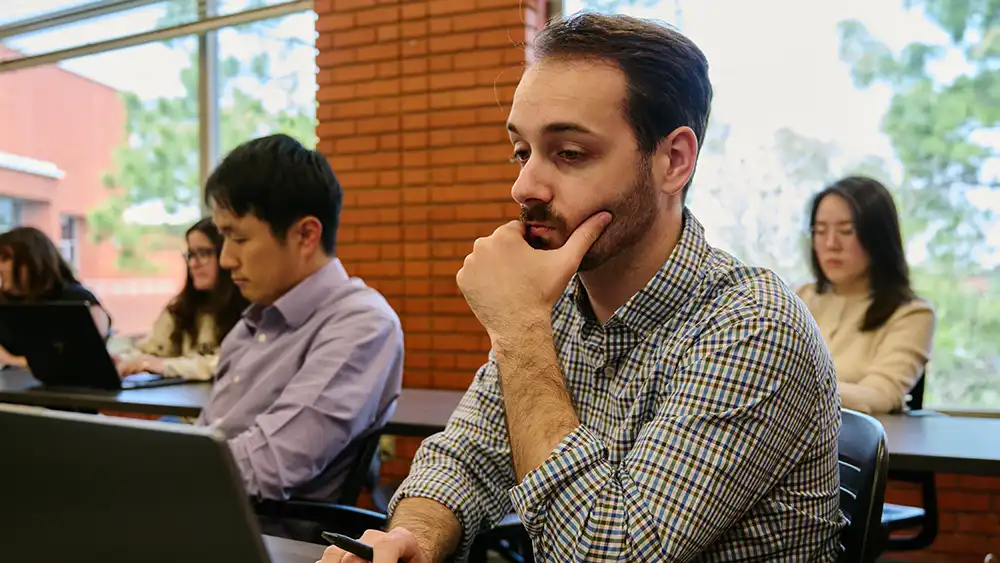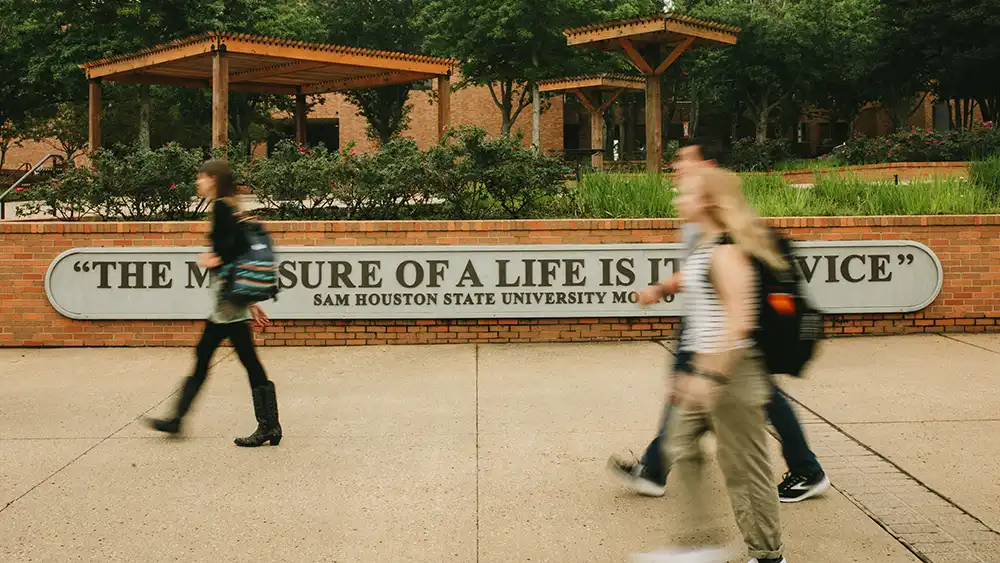Clinical Psychology
Clinical Psychology Ph.D. molds scientist-practitioners through coursework, research, and practicum, preparing graduates for various roles in psychology.

- Doctor of Philosophy
- Huntsville
- Face to Face
4-5 years + 1 Year Internship
about the program
The APA-Accredited Clinical Psychology Ph.D. Program at Sam Houston State University aims to produce scientist-practitioners who possess expertise in both research and clinical practice. We provide candidates with opportunities to develop attitudes, knowledge, and skills to become effective clinical psychologists as well as researchers and scholars.
The Program offers emphases in general clinical psychology and forensic clinical psychology; students in both emphases receive foundational training in general clinical psychology. Students in the general clinical emphasis choose from an array of course offerings and practicum experiences that best suit their professional interests. Students in the forensic clinical emphasis receive specialty training to become legally informed clinicians with knowledge and experience providing professional services within the legal system.
What information is available regarding student admissions, outcomes, and other data?
When and how can I apply?
-
- Applications due December 1
- Click here for more information on how to apply
Prospective Students
Graduates from our Ph.D. program in Clinical Psychology possess a wide range of skills and career opportunities, including in the areas of clinical work, research, teaching, or administration.
Students in the Doctoral program must complete 108 credits before graduation. This coursework includes classes related to discipline-specific knowledge, profession-wide competencies and forensic psychology as well as thesis, dissertation, practicum, and internship credits. Please see the Doctoral Program curriculum page for required coursework.
-
Careers
Graduates from our program are competitive for positions across the U.S. in a variety of settings. Our graduates hold sought-after positions in state hospitals, federal prisons, VAs, private practices medical centers, and academic departments.
-
Board Certification
Our graduates have a high rate of board certification from the American Board of Professional Psychology, which recognizes psychologists engaged in quality specialized practice. To date, 18 of our graduates hold board certification in Forensic Psychology and one graduate holds board certification in Neuropsychology.
-
Post-Doctoral Fellowship
Although not required for program completion of licensure in most states, many students opt to complete a post-doctoral fellowship. These 1-2 year training experiences are also highly competitive and our graduates have had great success in obtaining fellowship positions in a variety of settings, including hospitals, academic medical centers, and academic departments.
two emphasis options
General Clinical Emphasis: Students opting for the General Clinical emphasis will select electives from a rich set of courses that align with their interests and career goals and receive clinical training in practicum sites focused on refining their general clinical skills as well as skills tailored to work with specific populations or presentations. Students will complete the program with the preparation they need to pursue postdoctoral training relevant to their research and clinical interests.
Forensic Clinical Emphasis: In addition to the foundational research and clinical training provided to all students, students opting for the Forensic emphasis will complete forensically-focused didactic coursework (i.e., Forensic Assessment courses) and have the opportunity to participate in forensic evaluations for the courts. Students in this emphasis will receive specialty training to explain psychological phenomena to courts or administrative agencies, intervene with individuals and families at various junctures of the justice system, and provide assessment and treatment for both victims and offenders. Students will complete the program with the basic preparation they need to pursue postdoctoral specialty training and professional opportunities in both general clinical and forensic psychology.
research
Students are admitted to the Program under a primary research mentor. This faculty member serves as the supervisor for a student's first-year research assistantship and students will be generally expected to complete thesis and dissertation projects with their primary research mentor. Nonetheless, they are encouraged to interact and engage in research with other faculty members as time and workload allow. Students who develop research interests that fall outside their primary mentor's areas of expertise may conduct thesis and/or dissertation research under the supervision of other faculty members with the approval of all faculty members involved. Each student must complete an empirical thesis as a requirement of the doctoral degree. This requirement may be waived for students who enroll in our program after having completed a master’s thesis at another university. In such cases, the faculty will review the thesis to ensure appropriate scientific rigor and quality. Each student must complete a dissertation as a requirement of the doctoral degree.
practicum training
In addition to coursework and research, students in our doctoral program receive training in the direct delivery services. We approach this aspect of training in a manner that is sequential, graded in complexity, and cumulative. Practicum training begins with learning foundational clinical skills with volunteers during the summer between first and second year. Students then spend their second year seeing clients through the Psychological Services Center, where they carry a small caseload and work under close supervision by the Program faculty and staff. During the third year and beyond, students are placed at external practicum sites where they have access to a variety of training experiences, including assessment and treatment work with adult and juvenile clients, in a variety of service delivery contexts (e.g., inpatient, outpatient, correctional).
pre-doctoral internship
During their final year in the program, students complete a year-long internship in which they engage in full-time clinical work. Acceptance into a pre-doctoral internship is competitive, and applications are made a year in advance. In most cases, students relocate to another part of the country for their internships. Our rates of matching for internships can be seen in our Student Admissions, Outcomes, and Other Data.
We are proud of our students’ success in securing outstanding internships and have placed 100% our students in APA-accredited internship sites since we received accreditation in 2008. Our students have matched at a variety of competitive internships across the U.S. that include academic medical centers, federal prisons, VAs, inpatient psychiatric hospitals, and more.

Psychological Services Center
The Psychological Services Center (PSC) is located on the SHSU campus and operated by the doctoral program. Services are provided by doctoral students under the supervision of Doctoral Program Faculty and Staff Psychologists. The PSC has a dual mission of providing general clinical services to the community and providing forensic services to the criminal justice system.
The PSC provides assessment and treatment to adults, children, families, and couples. The facility provides services to clients with an extremely wide variety of psychopathology ranging from adjustment disorders to severe mood disorders to active psychosis. All second year students are placed here for their initial therapy and assessment experience. Two advanced students are assigned as clinic coordinators to assist the Clinic Director with administration and engage in peer supervision of junior students. A number of more senior students generally pick up therapy and assessment cases.
In addition to the aforementioned clinical services, many students conduct numerous forensic assessments under faculty and staff supervision through the PSC. These evaluations address a wide range of psycholegal issues, including assessment of various competencies, criminal responsibility, juvenile transfer, and risk assessment with both adults and juveniles.
Funding opportunities
The University offers several types of financial awards to eligible graduate students. The amount may vary from year to year.
Assistantships: Typically, doctoral students receive funding through research, teaching, or clinical assistantships. Our assistantships provide a stipend of $20.0004.00 per calendar year and qualify students for the in-state tuition rates. These awards are made on an annual basis and are subject to the availability of funds and eligibility. Recipients are required to enroll for a minimum of six credit hours during the semester in which funding is received. Please note that receiving payment from the university via certain assistantships (research, clinical) while only taking six credit hours may influence the degree to which you qualify for federal student loans.
Scholarships: Students in the doctoral program receive a scholarship in the amount of $2000.00 each Fall and Spring semester to help offset the cost of attendance.
Travel Funding: Scholarly research is the cornerstone of the Ph.D. degree. Consequently, students' scholarly activities will be supported as much as is possible in light of available resources. The Office of Graduate Studies provides funding for graduate student travel up to $1000 per year on a competitive basis.

Discover Your Future
Graduates from our Ph.D. program in Clinical Psychology possess a wide range of skills and career opportunities, including in the areas of clinical work, research, teaching, or administration.

Learn From Our Outstanding Faculty
Our nationally recognized and award-winning professors bring extensive educational and research experience, demonstrating their commitment to excellence in teaching.
consumer information disclosure
No clinical psychology doctoral program leads directly to licensure; licensure requirements are set by state agencies and are varied and can change at any time. That said, for many states, obtaining a doctoral degree from an APA-accredited doctoral program meets the educational requirements for licensure. In order to determine if a particular state’s educational requirements for licensure align with our program’s curriculum, students are encouraged to consult this website: http://psybook.asppb.org/ as well as to go to the state-specific licensing board websites to make sure you are accessing the most up-to-date information about licensure requirements. (You can find links to state and province psychology licensing boards here: https://www.asppb.net/page/BdContactNewPG). The Association of State and Provincial Psychology Licensing Boards PSY|Book was developed with plans to update it annually. In general, unless you know for certain where you will live and want to seek licensure, following the APA requirements listed in the clinical program handbook will likely suffice in terms of the doctoral educational requirements for licensure for most states. In the end, however, it is the student’s responsibility to determine licensure requirements (educational requirements or otherwise) for a state they want to be licensed in and how they can meet those requirements – students are thus encouraged to review the linked PDF and to direct questions regarding licensure in a particular state to the state’s licensing board.
Become a Bearkat
Ready to learn how SHSU can help you or to start your application today? Our Admissions team is here to help. Call 936-339-0148